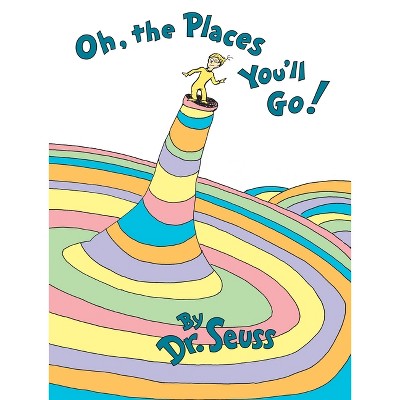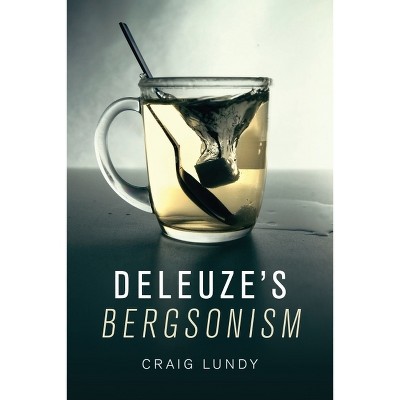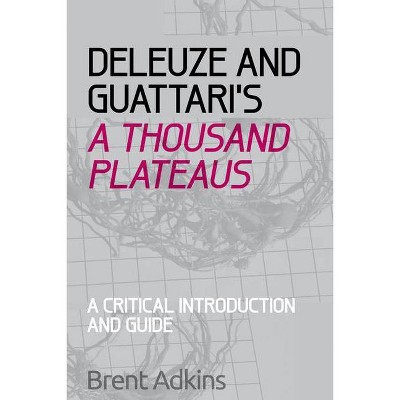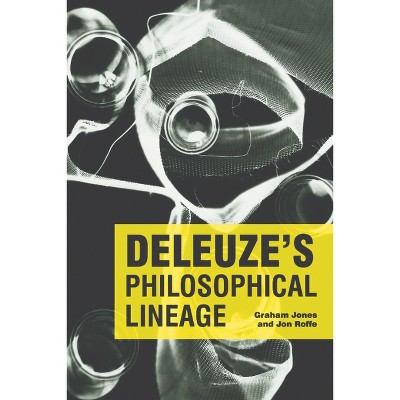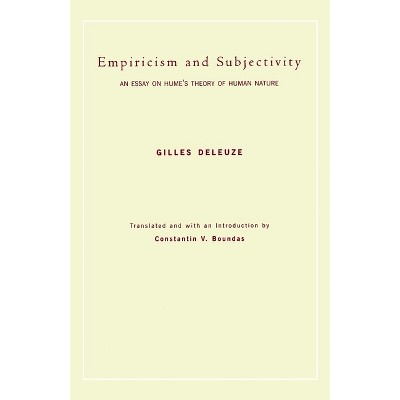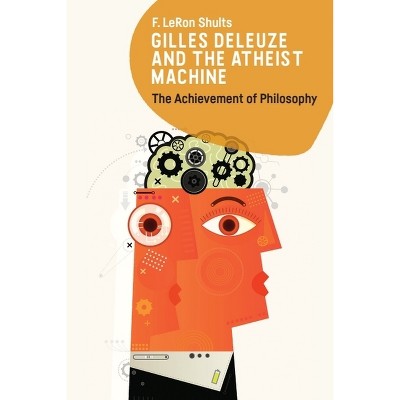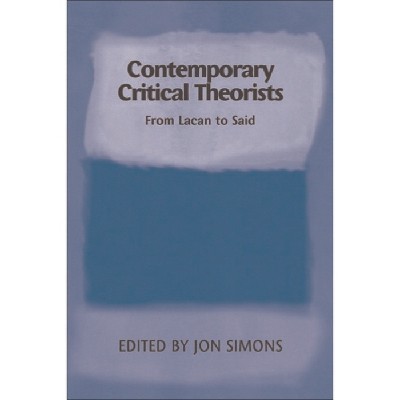Gilles Deleuze's Empiricism and Subjectivity - (Critical Introductions and Guides) by Jon Roffe (Paperback)

About this item
Highlights
- Jon Roffe shows how Empiricism and Subjectivity is the precursor for some of Deleuze's most well-known philosophical innovations.
- About the Author: Jon Roffe teaches philosophy at the Melbourne School of Continental Philosophy.
- 184 Pages
- Philosophy, Individual Philosophers
- Series Name: Critical Introductions and Guides
Description
About the Book
This guide explains the key arguments of Empiricism and Subjectivity, organised thematically. It features an Appendix with a propositional summary of the book, a final chapter on with the movement of the themes of Empiricism and Subjectivity through Deleuze's later work and a substantial suggestions for further reading.
Book Synopsis
Jon Roffe shows how Empiricism and Subjectivity is the precursor for some of Deleuze's most well-known philosophical innovations. For those already familiar with Deleuze, he emphasises its novelty within his corpus. And, for all readers, he shows how it outlines Deleuze's powerful and striking theory of subjectivity, and of philosophy itself.
Empiricism and Subjectivity is Gilles Deleuze's first book, and yet it is infrequently read and poorly understood. In fact, it constitutes a unique project in its own right, deserving of the same close study that is now widely given to other, more well-known works.
From the Back Cover
'Among the ranks of philosophical debuts, Gilles Deleuze's Empiricism and Subjectivity is surely one of the oddest - a book, at once unassuming and brilliant, on David Hume. The strangeness of this book has always rewarded those who are willing to muster rigor and indulge idiosyncrasy, and it's in this context that Jon Roffe's critical introduction is so good. Roffe is among the very few deft enough to convey the peculiar fusion of philosophical tastes that bring Deleuze and Hume together.' Gregory Flaxman, University of North Carolina, Chapel Hill Empiricism and Subjectivity is Gilles Deleuze's first book. It is a study of David Hume's philosophy and is infrequently read and poorly understood. Often presumed to be a youthful rehearsal for later, more mature developments of famous themes, in fact it constitutes a unique project in its own right, deserving of the same close study that is now widely given to other, more well-known works. For readers new to his work, Jon Roffe introduces Deleuze's compelling and productive way of reading other thinkers. To those already familiar with Deleuze, it presents his early reading of Hume on its own novel terms. More generally, it outlines the powerful theory of subjectivity and remarkable vision of the nature of philosophy that emerges from Deleuze's encounter with one of the founding figures of modern Western thought. Jon Roffe is Vice-Chancellor's Postdoctoral Fellow at the University of New South Wales, and is the founding convenor of the Melbourne School of Continental Philosophy. Cover image: (c) Mark Geffriaud, Joris Kritis, Julie Peeters, Raimundas Malasauskas and Elena Narbutaite Cover design: [EUP logo] edinburghuniversitypress.com ISBN (cover): 978-1-4744-0583-6 ISBN (PPC): 978-1-4744-0582-9 BarcodeReview Quotes
Among the ranks of philosophical debuts, Gilles Deleuze's Empiricism and Subjectivity is surely one of the oddest - a book, at once unassuming and brilliant, on David Hume. The strangeness of this book has always rewarded those who are willing to muster rigor and indulge idiosyncrasy, and it's in this context that Jon Roffe's critical introduction is so good. Roffe is among the very few deft enough to convey the peculiar fusion of philosophical tastes that bring Deleuze and Hume together.--Gregory Flaxman, University of North Carolina, Chapel Hill
About the Author
Jon Roffe teaches philosophy at the Melbourne School of Continental Philosophy. He is the author of Gilles Deleuze's Empiricism and Subjectivity (Edinburgh University Press, 2017), Abstract Market Theory (Palgrave, 2015) and Badiou's Deleuze (Acumen 2012). He is the co-author of Deleuze's Philosophical Lineage II (Edinburgh University Press, 2019) and Deleuze's Philosophical Lineage (Edinburgh University Press, 2009), Practising with Deleuze (Edinburgh University Press, 2017) and Lacan Deleuze Badiou (Edinburgh University Press, 2013), and co-editor of a number of volumes on 20th-century French thought.
Shipping details
Return details
Trending Poetry

